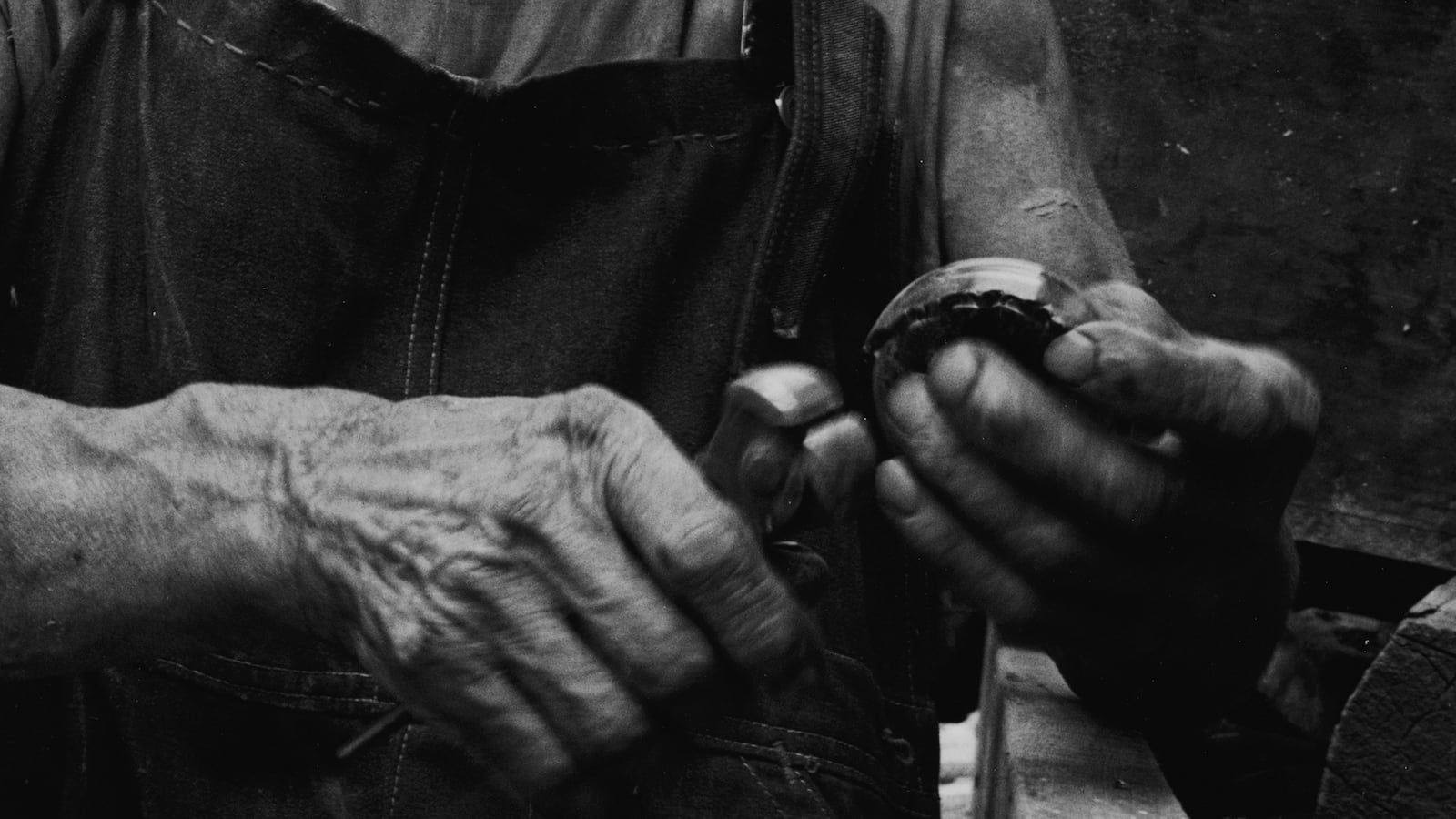Somewhere men’s masculinity got hocked for gadgets, videogames, fast-food drive-thru’s, designer clothing, 10-minute oil changes, and reality TV.
Being raised in a working-class household, everything was earned and learned. My parents rented their bodies for hourly coin. My mother slaved in a chicken factory for a number of years, parting fowl with a butcher blade, while my Vietnam Vet father sweated in a tobacco plant in the ’70s and into the early ’80s. Then his plant shut down and he started over. Worked three jobs: selling insurance, tending bar, and playing soldier in the Army Reserve. My mother climbed the pay-raise ladder and took a swing-shift job in a battery-separator plant—and still cooked, cleaned, and nursed her family.

Hunting wild game placed most of the meat in our freezer and on the table. My father and grandfather always took me hunting during deer season. When a deer was shot, they showed me how to field-dress it. Then we dragged the damn thing to the barn unless we could get the truck or tractor close enough to it in the woods, wrapped a chain around its hinds and pulled it, or the three of us heaved it up onto the truck’s tailgate. Guys these days get scared at the site of blood when skinning or gutting an animal let alone dragging the damn thing from the woods and processing it themselves.
In this day and age, men have gone from being learned by their fathers and grandfathers, to being babied by their mothers. Growing up on videogames, McDonald’s, and having someone else wait on them hand and foot. Men seem to know less and less about where their fathers, grandfathers, and great-grandfathers came from. Their history, where and what they worked. What they endured and how they suffered to get them to where they are today.
Me, I was raised in the middle of the technology boom. Hard-earned skills were being replaced by gadgets, and jobs were being shipped to foreign territories for lower wages and larger profits, letting someone else do what your father or grandfather did with his own hands. College was the new word. Student loans were the add-on. Then the college graduate found a degree in one hand, debt in the other, a loan to pay back, and a job to find. More than likely pushing buttons on a PC at a desk in a cubicle, answering phones, managing deadlines, and going to meetings.
I balked at college, found good hourly earnings in a factory that hadn’t been sold overseas for lower wages. Where union working men complain about food and gas prices, their fluctuating 401K accounts, restrictions on hunting season, how the company they work for pisses them off, some fill the downtime with cigarettes, others with cups of coffee and not-so-healthy eating habits.
What I’m saying is, a large number of men have lost their ruggedness. Maybe they never had it. I believe to be a man is to be tough mentally and physically. To have a small set of skills to survive from day to day when needed. Like lifting weights or boxing in a dust and spider-web-infested concrete shed with a tin roof. Where it’s sweltering in the summer and freezer-burn-cold in the winter, to keep the body and mind tough. Hunting and fishing to hone the skills my father and grandfather passed onto me.
I’ve met guys who take great pride in their cars but can’t even change a flat tire, guys who glory in a steak dinner but squirm when I speak of killing a deer. They struggle with baiting a worm onto a fishing hook and can’t stand the site of gutting, scaling, and cleaning fish. My mother and grandmother did all of this and without effort. I grew up around strong-willed and even more capable females the same as I did males.
And when walking the aisles of a bookstore, those are the characteristics that interest me most, writers who shed light on what masculinity means, what it is to be tough, to be rugged, to be able to take care of your damn self. No, there’s no Masculine Lit section like there’s a Mystery, Sci-fi, or Romance section. But if there were I’d stock those shelves with Charles Bukowski, Thom Jones, Jim Harrison, Larry Brown, Hubert Selby, Daniel Woodrell, Donald Ray Pollock, and Cormac McCarthy. I’d throw Harry Crews in there but he’s like rare bourbon, hard to come by, but worth every drop—we’d have to keep him behind the counter. Same as Roger Smith or James Carlos Blake, those names are too manly for most shelves.
It’s not that I write for men only. Though sure, I’d like to see more men read my work. But nothing makes me happier than hearing about a reader like Bonnie Jo Campbell’s mother, who, I was told was “shrieking with pleasure” while reading an advance copy of my novel Donnybrook, can relate to and enjoy testosterone-fueled prose. And I read female author’s work the same as males. Writers like Bonnie Jo, and Dorothy Allison, Flannery O’Connor, and Marjorie Kinnan Rawlings, women who come from and know struggle, understand the land they were raised upon, can wield an edge or a gun and prose that will sear your mind when writing about it.
On the page, I’m giving back to the callused hand men and women, good or bad, that nurtured and taught me how to be a man without knowing it, so they can live on in my work.





